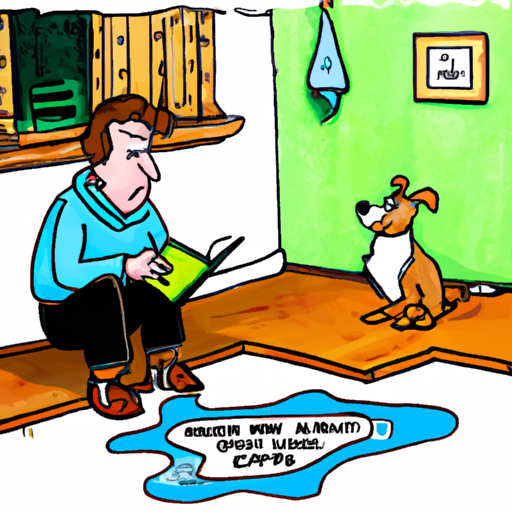Life with our four-legged friends is full of joy and companionship, but occasional accidents can put a damper on our bond. Don’t fret, dear caregiver. This comprehensive guide will help you address the issue of your dog peeing in the house.
1. Understanding Why Dogs Pee in the House
Understanding the root cause of your dog’s behavior will help you address it more effectively. Dogs may pee in the house due to:
- Medical issues: Health problems like urinary tract infections or kidney disease can trigger incontinence. If your pet has suddenly started having accidents, it might be time for a check-up.
- Fear or anxiety: Dogs often pee when they’re scared or stressed. Loud noises, separation anxiety, or changes in environment can trigger such behavior.
- Marking territory: Particularly unneutered male dogs may pee to mark their territory.
2. Training Your Dog with Positive Reinforcement
Training your dog not to pee in the house requires consistent, positive reinforcement.
- Set a Routine: Dogs thrive on routine. Set specific times for meals, play, and potty breaks.
- Reward Success: Every time your dog does his business outside, reward him with praises, petting, or treats.
- Avoid Punishment: Never punish your dog for accidents. It can lead to fear and confusion, making the issue worse.
3. Clean Accidents Thoroughly
| Cleaning Agent | Pros | Cons |
|---|---|---|
| Enzymatic Cleaners | Breaks down urine molecules | More expensive |
| Vinegar and Water Solution | Cheap and effective | Strong smell |
Remember to clean any accidents immediately and thoroughly. Dogs have a keen sense of smell and are likely to pee in the same spot if any odor remains.
4. Consider Using Dog Diapers or Pee Pads
For dogs who are struggling with incontinence due to age or illness, dog diapers or pee pads can be a great help. They can also be useful for puppies who are still in the process of being housebroken.
5. Seek Professional Help
If your dog continues to pee in the house despite your best efforts, don’t hesitate to seek professional help. A dog trainer or a veterinarian can provide valuable insights and solutions tailored to your pet’s needs.
Frequently Asked Questions
Q: How long does it take to house train a dog?
A: It typically takes 4-6 months to fully house train a dog, but some might take up to a year.
Q: Should I punish my dog for peeing in the house?
A: No. Punishment can lead to fear and confusion, which might exacerbate the problem.
Q: Can medical issues cause dogs to pee in the house?
A: Yes. Certain medical conditions such as urinary tract infections or kidney disease can cause incontinence. If your dog’s behavior changes suddenly, a vet check-up is recommended.
Q: Can anxiety make my dog pee in the house?
A: Yes. Dogs can pee due to fear or stress. Try to identify and remove any potential stressors, and consider consulting with a vet or a professional dog trainer.
Remember, patience and consistency are key. Your dog is not peeing in the house to annoy you, but because they’re struggling with an issue. With love and persistence, you will help them overcome this challenge.



